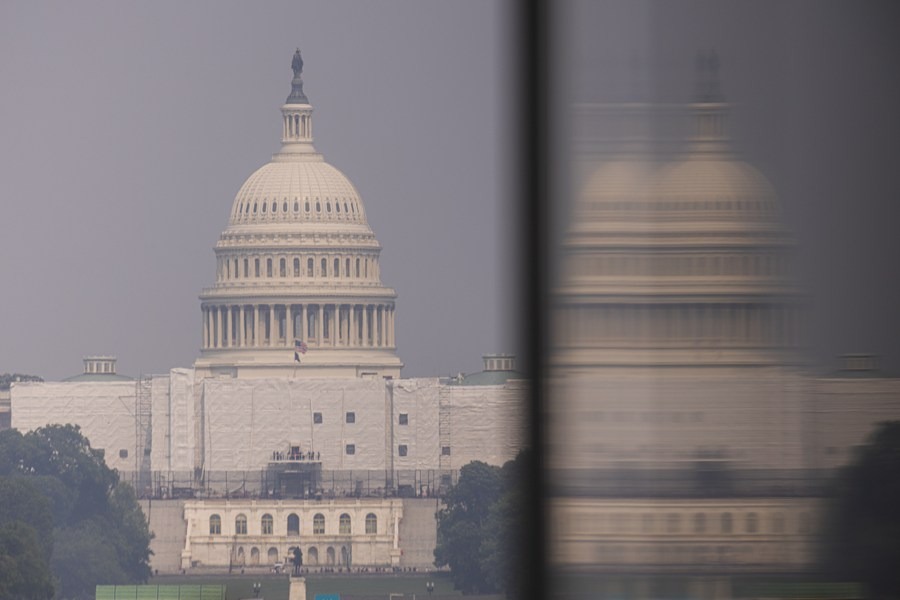Modern fiscal system key for socialist market economy


The third plenary session of the 20th Central Committee of the Communist Party of China, held from July 15 to 18, adopted the resolution on further deepening reform comprehensively to advance Chinese modernization. Eleven years ago, in 2013, the third plenary session of the 18th CPC Central Committee adopted the "Decision of the Central Committee of the Communist Party of China on Some Major Issues Concerning Comprehensively Continuing the Reform" in order to establish a "proper relationship" between the government and the market, and allow the market to play a decisive role in resource allocation and better leverage the role of the government.
In the years since the 18th National Congress of the CPC in 2012, China has realized that modernizing the fiscal system is necessary to comprehensively deepen reform, and establishing a modern fiscal system is essential for building a high-level socialist market economy and advancing Chinese modernization.
Modernization of fiscal and tax system
Since the 18th CPC National Congress, the Party has advanced the modernization of the fiscal and tax systems. For example, China has adjusted the division of financial responsibilities and expenditure between the central and local governments, with the central government assuming the responsibility of spending more on basic public services such as education, healthcare and eldercare. It has also optimized the structure and management of transfer payments, with general transfer payments increasing in scale and proportion, and established a mechanism for direct allocation of fiscal funds.
In terms of tax policy, China has replaced the business tax with value-added tax (VAT), simplified and reduced VAT rates, while gradually introducing VAT refund policies, implementing a comprehensive personal income tax system, raising the tax exemption threshold and reducing the tax burden of residents. It has also made significant progress in implementing tax laws.
China practices comprehensive budget management, which covers all sources of government revenue and expenditure, and has introduced performance-based budgeting while making government and department budgets much more transparent, implementing a cross-annual budget balance mechanism and allowing local governments to issue debt so they can broaden their financial channels and fiscal policy tools. This suggests China has established a more or less modern fiscal system framework in the years since the 18th CPC Central Committee's third plenum.
In the new era, the comprehensive deepening of reform requires the establishment and improvement of a modern fiscal system. And the 20th CPC Central Committee's third plenum has recommended ways to use a modern fiscal system to promote Chinese modernization.
Tax-sharing reform should be optimized
The mismatch between local governments' financial resources and spending responsibilities has been a major issue since the initiation of tax-sharing reform. While the central government has been allocating more funds to basic public services since the 18th Party Congress, the fundamental contradiction of tax-sharing persists. This contradiction can be effectively resolved by establishing a modern fiscal system, which will strike the right balance between financial resources and spending responsibilities across all levels of government.
First, there is a need to strengthen the central government's macroeconomic control. China's vast territory and regional differences in resource endowment, social structure and economic development necessitate strong central macroeconomic control to facilitate normal fiscal activities in less-developed regions.
Second, the central government should spend much more on shared matters and take measures to ease the financial pressure on local governments, because lower level governments face fund shortage after being made to shoulder more spending responsibilities.
Third, the local tax system should be improved. A robust local tax system can help local governments meet their expenditure needs and incentivize local initiatives. Since local taxes do not generate enough revenue to meet the local governments' financial needs, the point of collection for consumption tax, currently a central tax, should be shifted to the local authorities so as to increase their tax revenue.
And fourth, the transfer payment system should be digitalized, as the digital economy facilitates the cross-regional flow of goods.
Modern tax system for market efficiency
Optimizing the tax structure, enhancing the direct tax system and increasing the proportion of direct taxes are tax reforms which can improve market efficiency, reduce the tax burden of businesses and promote social equity, thus helping build a high-level socialist market economy.
Since 2017, China has reduced its VAT rates from four to three tiers, addressing the problem of "high levy, low deduction" and "low levy, high deduction". However, multiple tax rates still cause problems, undermining tax neutrality and increasing management costs. To address this issue and modernize the tax system, China should gradually simplify VAT rates.
Also, including high-energy-consuming, environmentally harmful, and luxury goods in the tax base and appropriately raising taxes on luxury goods can promote green consumption and address environmental concerns and help align economic development, industrial policy and social needs.
And reforming the personal income tax regime to support the growth of the middle-income group is crucial for achieving common prosperity. While the tax rate structure should be optimized, the number of tax brackets reduced, and marginal tax rates lowered, people's tax burden should be further alleviated by increasing special deductions and raising the standard deduction amount.
More importantly, developing new quality productive forces is necessary to realize high-quality development and implement comprehensive reform. This includes enhancing tax support for applying technological innovation to industry and creating a favorable tax environment for institutions and enterprises engaged in basic research.
Fiscal discipline and efficiency
A robust budget system is the soul of modern fiscal management, as it focuses on easing budget constraints, which determines the scope and mode of government revenue and expenditure. It is necessary to adhere to the budget norms. The principles of "no expenditure without a budget" and "no overspending" should be upheld to prevent misappropriation of funds, and a budget execution monitoring system established to detect deviations early and make timely corrections, and fiscal audit supervision strengthened to make sure all expenditures comply with budget requirements.
Besides, China's budget coordination needs improvement, especially when it comes to managing idle government assets and funds, coordinating the "four budgets", (public budget, social security fund budget, State-owned capital operation budget, and government fund budget), and expanding State-owned capital operation budgets.
To resolve the conflict between proactive fiscal policies and fiscal sustainability, a budget cycle should be designed to incentivize all levels of government and effectively implement fiscal policies. Also, a meaningful cross-annual budget balance mechanism should be established to fill the fiscal revenue shortfalls during economic downturns and address the problems created by annual budget balance requirements.
Moreover, China's debt structure should be optimized by increasing central and general debt, reducing local debt costs and debt risks, and preventing disorderly local borrowing. And while the proportion of implicit debt should be reduced, local government debt should be more strictly managed to prevent and address systemic financial risks, and ensure local government bonds are used for designated projects, in order to increase the returns on investment and reduce idle funds.
He Dexu is head of the National Academy of Economic Strategy, Chinese Academy of Social Sciences; and Xi Penghui is an associate researcher at the same academy.
The views don't necessarily represent those of China Daily.
If you have a specific expertise, or would like to share your thought about our stories, then send us your writings at opinion@chinadaily.com.cn, and comment@chinadaily.com.cn.


































